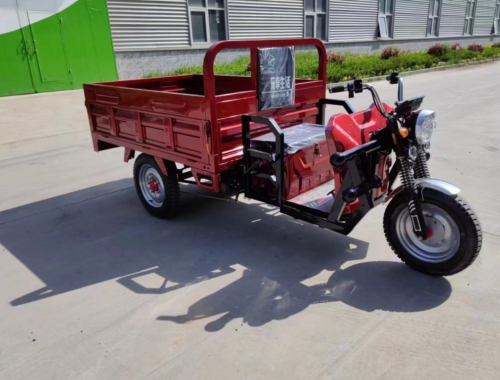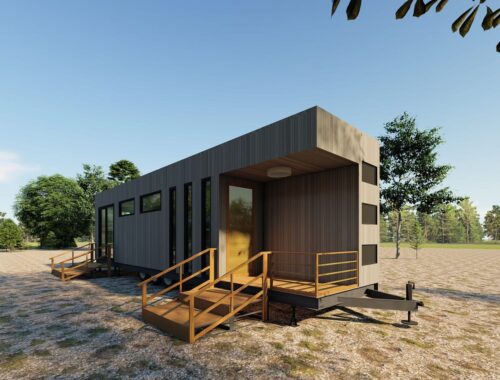A Bikepacker Sees Way More Than Marco Polo Ever Did
In an excerpt from Kate Harris’s new memoir, ‘Lands of Lost Borders,’ the modern-day explorer leaves academia for a bicycle adventure on the Silk Road
The first sign of doubt is a renewed fanaticism. Back at university, in Chapel Hill, North Carolina, I studied harder than ever in hopes of becoming an astronaut, despite questioning, deep down, whether I wanted to permanently emigrate to Mars if it meant a lifetime of containment. I spent my spare time presiding over a space club and volunteering in a marine microbiology lab, where my job was to tease long, invisible threads of DNA from the basaltic crust of the Pacific Ocean. Though I didn’t have the opportunity to retrieve those sea-floor samples in a submarine, the lab was located in a windowless basement, which offered a similar experience of sensory deprivation, only without any of the adventure. Whenever I walked outside, pale and blinking, I felt as if I’d been submerged for months. Books kept me going like bubbles of oxygen. One afternoon, shielding my face against the sun after the dim fluorescent flicker of the lab, I settled onto the grass on campus with my old friend Marco Polo, hoping to let my eyes readjust to wider horizons with the help of a childhood hero—this time in his full, unabridged glory.
But as I read The Description of the World, I was shocked to encounter a stranger in the Venetian explorer, someone who didn’t relish slogging across lands that left me dizzy with longing. Instead, this Polo skirted the Taklamakan’s wandering dunes as widely as possible, meekly plugging his ears against the spirit voices he feared would lure him into the trackless sands. He may never have seen a big-horned sheep alive in the Pamir, just their horns carved into bowls or stacked as fences, though this species, Ovis ammon polii, was eventually named after him: the Marco Polo sheep. And when he visited the Tibetan Plateau, he dismissed it as a blighted wasteland. “You ride for 20 days without finding any inhabited spot,” he complained, “so that travelers are obliged to carry all their provisions with them, and are constantly falling in with those wild beasts which are so numerous and so dangerous.” Again and again the so-called explorer dashed around mountains and deserts as quickly as possible, cursing wilderness as a mere obstacle to swift progress and profit.
I couldn’t exactly blame him, for the Silk Road was a 13th-century superhighway for trade, after all, and Polo a merchant. After following his businessmen uncles to Cathay, where Kublai Khan took a shining to the Venetian teenager, Polo was tasked with assessing the value and variety of goods throughout the Mongolian empire, which at the time spanned Asia to the edge of Europe. Polo took this duty seriously, and as a result his travelogue reads more like a catalog. The book details the precious commodities available along the Silk Road: silver in Armenia, rubies in Badakhshan, black magic charms in Kashgar, ivory in India. With regard to lands less obviously exploitable, such as Tibet, the text is far terser.
I was gutted. Like so many explorers falsely portrayed as noble trailblazers in my high school history textbooks—from Christopher Columbus to Sir John Franklin—Polo turned out to care mostly about fortune and fame. Did no one but Alexandra David-Néel set off for the pure sake of setting off, propelled by a basic need to see around the bend, without the ulterior motives of wealth and conquest? Sitting in the quad, feeling bereaved, I resolved to see the Silk Road for myself, on a pilgrimage to the precise wildernesses Marco Polo most feared and shirked. I briefly considered traveling on horseback, but the lack of water in the Taklamakan was concerning. Camels were better suited to such arid environments, but the terrain would be bumpy enough as it was. A bicycle struck me as the perfect substitute: self-propelled and unlikely to spit.
That night I called my parents and outlined my preposterous plan. There was a long silence on the line. Then my mother said, “Please go with a friend?”
So I asked Mel if she wanted to join me on a bike ride. Just the Chinese section of the Silk Road for starters, I reassured her; it boasted the greatest concentration of places Polo most dreaded. After a warm-up trip across the continental United States that summer, we graduated from university the following year and hit the Silk Road. And that’s how we found ourselves dodging landslides in the Pamir Mountains, gritting teeth through sandstorms in the Taklamakan Desert, and slinking toward Tibet while the stars looked the other way.
(Tibetan Plateau)
Eventually dawn lit the land around us, revealing mountains as rough as gnawed-down fingernails. The ragged peaks stretched on as far as I could see, a fury of forms. Rock turned to rust in the low-angled light and faded to umber and gray as the sun rose higher. A flock of dusty birds I couldn’t name swooped above the river, whose turbid surge was distilled at this higher altitude to a clear stream, its water no longer the color and texture of chocolate milk. I felt thin and insubstantial as a shadow, but the day had barely begun. Around every bend in the road I braced myself for a police convoy, a glimpse of the plateau, a woolly mammoth. Nothing would’ve surprised me, for the world seemed less unknown than unknowable, wavering around me like a half-formed thought. Then I realized I was dizzy with thirst.
I reached down for my water bottles, but the first was empty and I couldn’t find the second—probably lost in the turmoil at the checkpoint. I told Mel to continue on while I stopped to fill my bottle in a roadside stream. Because of the steady drawl of the water, I didn’t hear the car pull over. I turned around and there it was, puttering with menace, some sort of government emblem on the door. When a chubby Chinese man in a crisp navy blue uniform got out, I knew it was over, for the third time that morning.
Without saying a word, the Chinese cop kicked my bike’s tires and tried to lift its frame. The heavy bike hardly budged. Shaking his head, he returned to the car and fumbled in the trunk. For an arrest warrant, I was sure, possibly handcuffs. Instead he returned with three crisp cucumbers.
“Hello!” he grunted as he handed me the vegetables.
“Oh,” I said, stunned. “Thank you!”
Without another word, he got into the vehicle and drove off.
I caught up with Mel, who had been oblivious to my plight, and gave her a cucumber. She looked surprised, but a cyclist is never one to turn down a snack. We continued biking, munching as we pedaled, and by midday reached the bottom of a 10,000-foot pass, the first step on the hypoxic staircase of passes climbing onto and across the Tibetan Plateau, where the average ground elevation is nearly as high as Mont Blanc. Lacking the energy and nerves to tackle the pass that day, we found a gully deep and wide enough to camp in and lounged there all afternoon, trying to ignore the imminent prospect of discovery by the Chinese police. Cucumber Cop had probably told his colleagues there was no need to rush, convinced we couldn’t get far on such heavy bikes.
The higher we climbed onto the Tibetan Plateau, the better I could breathe. I felt a strange lightness in my legs, an elation of sorts. Each revolution of the pedals took me closer to the stars than I’d ever propelled myself, not that I could see them by day, when the sky was blue and changeless but for a late-morning drift of clouds. The shadows they cast dappled the slopes of mountains like the bottom of a clear stream, so that climbing the pass felt like swimming up toward the surface of something, a threshold or change of state. Earth to sky, China to Tibet.
My tires scrabbled for traction on the loose knuckles of gravel paving National Highway 219, the only road leading into and across western Tibet. After just two switchbacks, we were high above our last camp, and I could see Ben and the Germans milling around below, dawdling as usual. Mel and I preferred waking and biking early, when the land came alive in the slanted light of morning and it seemed we had time enough to get anywhere by nightfall, Lhasa or the moon. Florian, Mattias, and Ben preferred to sleep late, boil enormous pots of sweet milky rice for breakfast, and amble onto the road at midday. We usually crossed paths again in the late afternoon, when they either caught up with us or found our camp.
Mel and I biked up the pass side by side, barely speaking, sent into parallel solitudes by the effort of the climb. I’m not sure where I go when I spin wheels for hours on end like that, except into the rapture of doing nothing deeply—although “nothing,” in this case, involves a tantrum of pedal strokes on a burdened bicycle along a euphemism for a highway through the Himalaya. But in the singular focus of that task, the almost tantric simplicity of it—breathe, pedal, breathe—I took in everything at once: the dust settling on my skin, the ache and strain and release of my quads, the river glittering far below like an artery of light, a shining silver vein, surely not the same sludge-like flow we’d camped next to a few days ago. Ride far enough and the world becomes strange and unknown to you. Ride a little farther and you become strange and unknown to yourself, not to mention your traveling companion.
“Nice face mask, bud,” Mel managed between pedal strokes. “Wearing enough sunscreen?”
I grinned through a thick mask of sweat and grit and sunscreen, which I never rubbed in upon application, convinced it worked better as an opaque, unabsorbed gloss.
“You’re one to talk!” I told Mel. “Your hair is growing its own hump.”
I can’t remember exactly how we became friends, but I believe it had something to do with volleyball. When my family moved north of Ballinafad, Ontario, when I was ten, I was the bookish new kid in a school where Mel was universally adored for her unconstellated freckles and the red hair she hated, for her sidelong sense of humor and winning habit of throwing her head back when she laughed. We had little in common until gym class, where the two of us were among the few kids who dove to stop every spike, no matter how futile the reach, how unforgiving the floor tiles. Our team went on to lose every match for the next three years of elementary school—not just every game, but every set. I didn’t mind, and neither did Mel. The point of life, by our mutual measure, was to give it all we had. The only way we knew how to go was too far.
Hence Tibet. An hour into the climb, the sun glared directly above us in the narrow gap of sky not shuttered by mountains, so we stopped to reapply sunscreen. I smeared more on my face and Mel daubed some on her lower back, not so much to block it from UV radiation, for it was already shielded by her shirt, but to moisturize her skin, which was flaking away in bright-red bits. The day before sneaking across the checkpoint, while bending over to sort and pack gear, Mel’s T-shirt had slipped up and exposed her lower back to the high-altitude glare, which fried the skin a few shades angrier than scarlet. She didn’t complain—Mel rarely did except to exalt her suffering in satire, a form of stoicism I admired and occasionally found insufferable—but I could tell she’d been riding stiffly to avoid twisting her seared torso. No easy task on a road paved in potholes.
After moisturizing, Mel sighed in the quietly determined way that meant she was ready to get back on the road. I wasn’t. “Do you hear that? Is it a bird? Or maybe the boys?” I ventured, hoping to distract her into resting a little longer. A large part of why I love biking is how blissful it is to stop. “Hey, are you hungry?”
Of course she was; we always were.
Back on the bike, I pretended that the wheels didn’t travel the world’s surface so much as unspool it, and if I stopped pedaling for even a second it would all fade away. The mineral glitter of the mountains and the cloud-shot indigo sky and this road like a parade of detours was all a dream sustained only in motion.
Three hours and as many false summits later, I knew we’d reached the top when Mel, ahead on the road, threw her bike down and started turning cartwheels. I was so light-headed and giddy I seemed to be cartwheeling while standing still. It was one of those rare moments in life when you measurably accelerate into a new version of yourself, become who you are by leaps and bounds. That I’d pedaled to an altitude I’d only previously visited in airplanes, and that I could still breathe, was a revelation, like discovering an extra lung or the ability to see in ultraviolet. I’d always hoped we’d make it to the Tibetan Plateau, still technically a few passes away, each higher than the last, but now, for the first time, I believed it.
Excerpt from Lands of Lost Borders: A Journey on the Silk Road by Kate Harris.
You May Also Like

WHY ELECTRIC TRICYCLES FROM CHINA ARE TRANSFORMING GLOBAL TRANSPORTATION: A GUIDE TO CHOOSING THE BEST MODEL
December 31, 2024
トレーラーハウスで叶える自由な暮らし
March 17, 2025